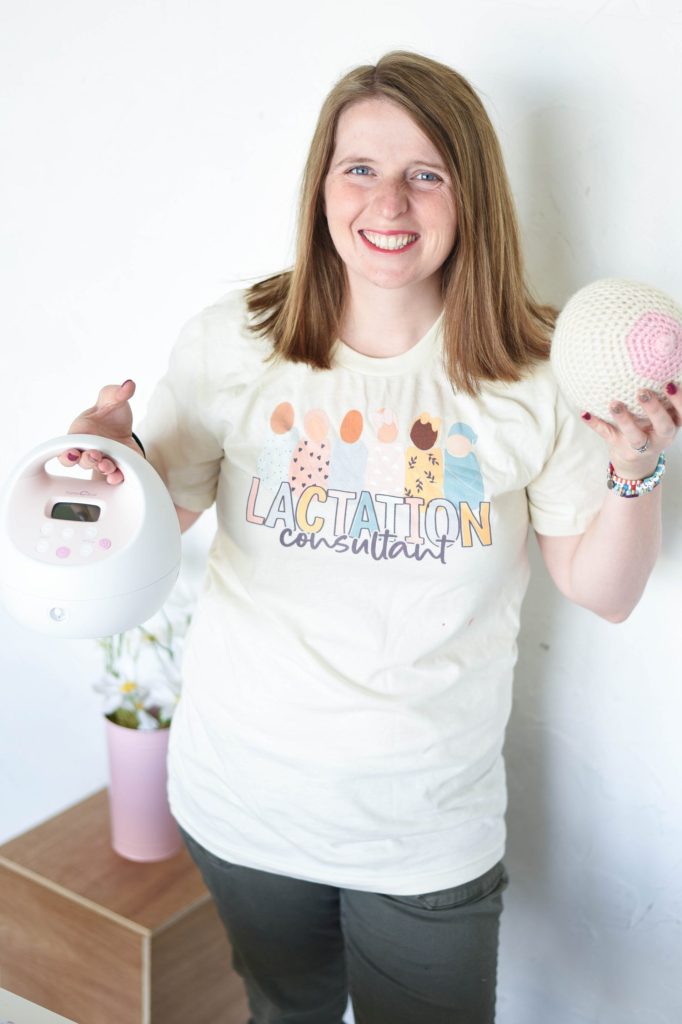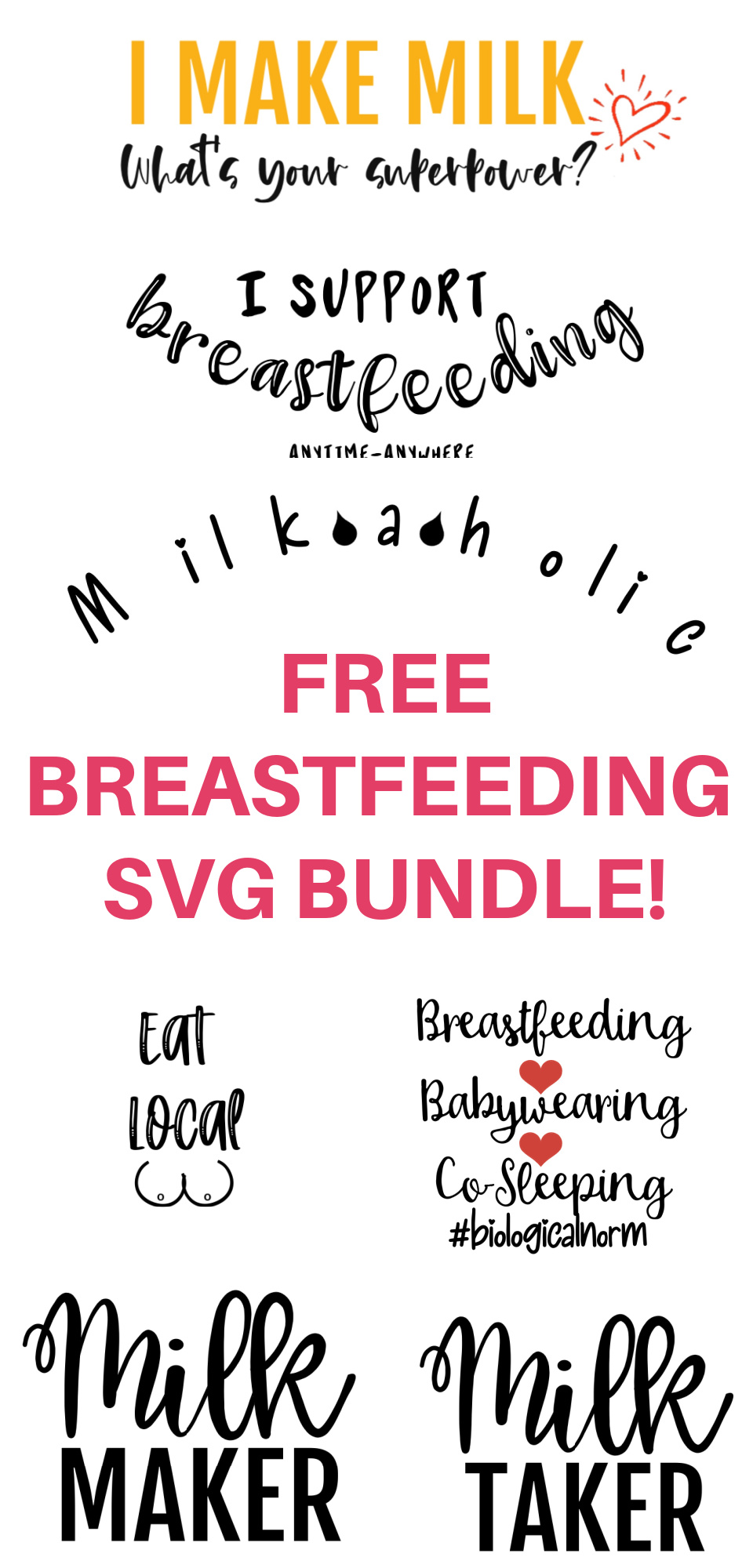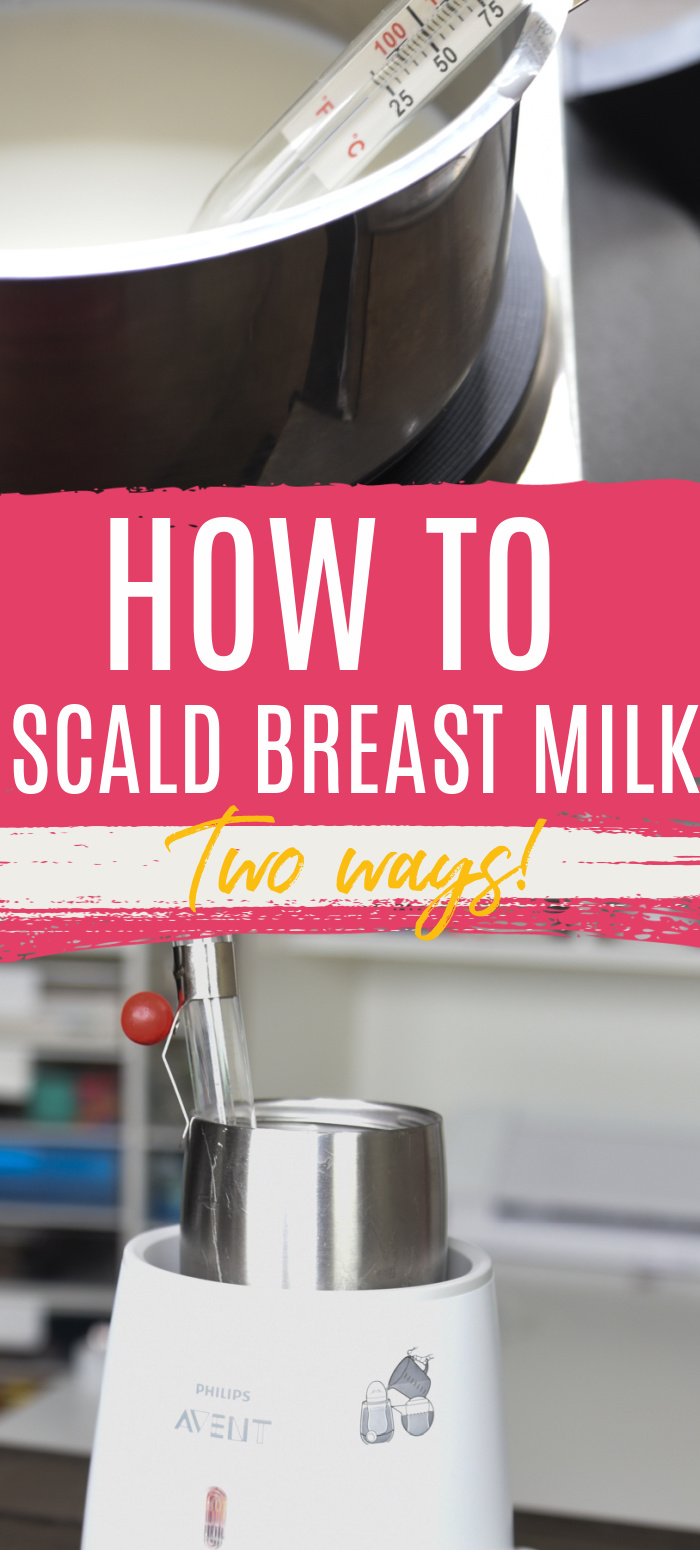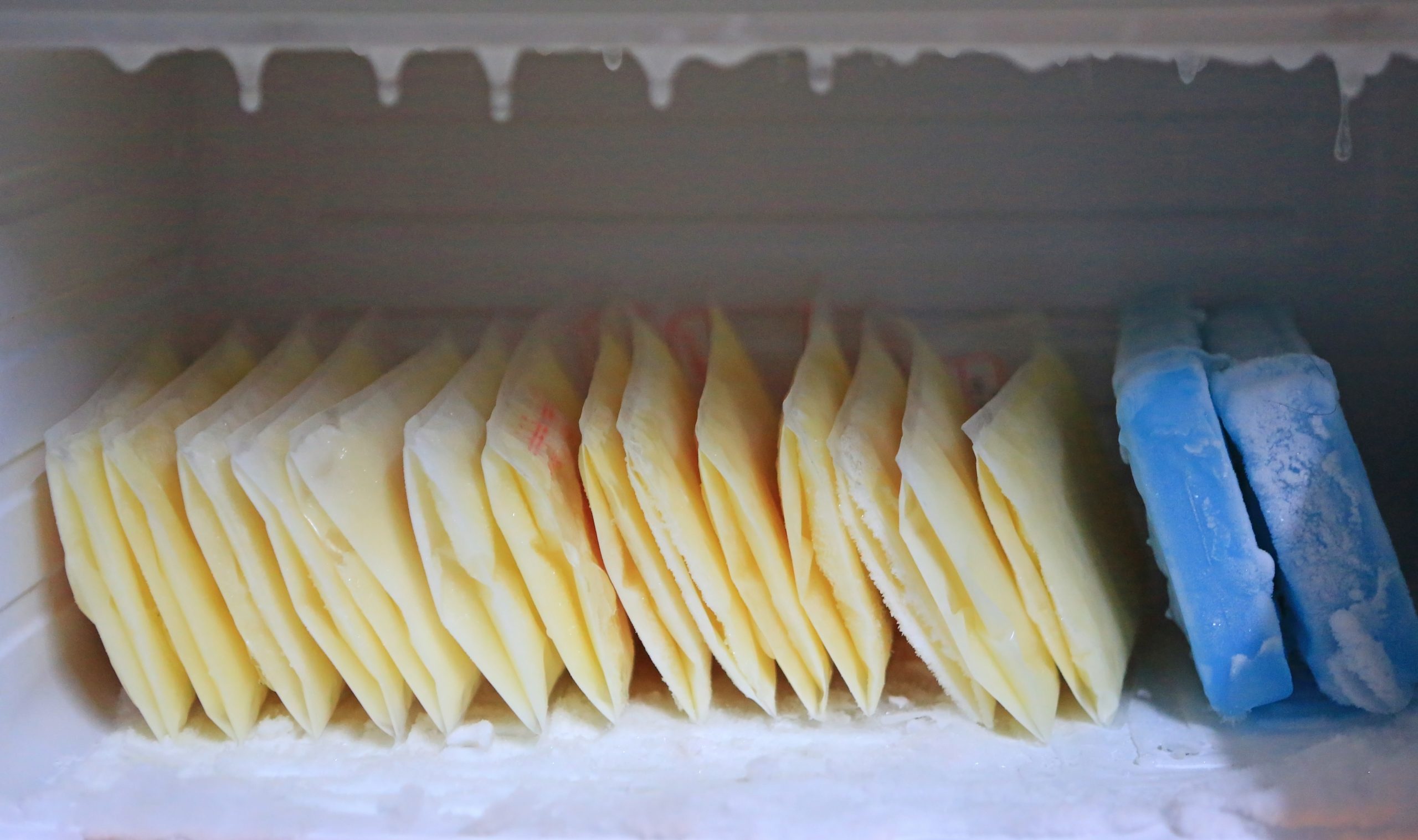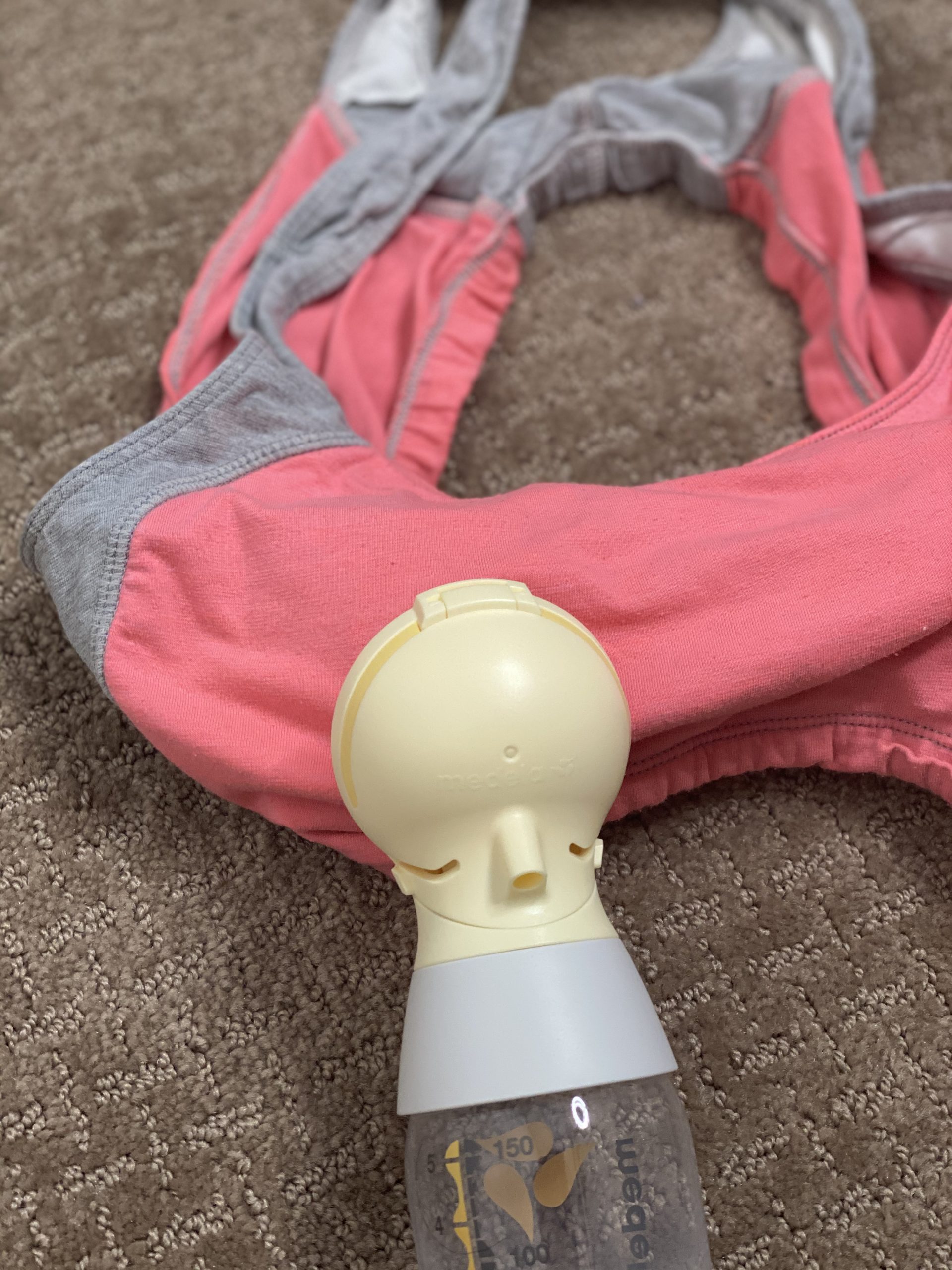Breastfeeding and the consumption of alcohol can be a tricky subject. In this article, you will learn all you need to know about breastfeeding and alcohol, based on the most current research.

When you are breastfeeding many moms wonder how alcohol affects your breastmilk and your baby. Here is everything you need to know about breastfeeding and alcohol.
A common question among breastfeeding moms, is is it okay to breastfeed and consume alcohol? If it is okay, how much is okay? And how does it affect your breastmilk and your baby? We are sharing all the tips, effects, and many FAQS when it comes to breastfeeding and alcohol.
[the_ad id=”2070″]
Table of contents
I want to start this by saying that there are many different opinions – varying from you shouldn’t drink at all while breastfeeding to saying you don’t need to abstain from breastfeeding for any period of time if you drink one drink. I will share those differing opinions in this article. My purpose in writing this article is to provide you with resources to make the best decision for your family.
Breastfeeding and Alcohol
After nine months of not consuming alcohol, many moms look forward to getting to have an occasional glass of wine once again, but they want to do it safely especially when breastfeeding. So, many wonder what is the safe amount of alcohol that they can consume without altering their breastmilk and harming their baby.
Moderation and timing are key when consuming alcohol when breastfeeding. An occasional glass of wine or beer is not going to affect your infant if you time it perfectly.
This breastfeeding and alcohol chart is great to see how long alcohol will take to get out of your system.
Does Alcohol transfer to your breast milk?
Yes – alcohol can be found in breast milk. The levels are typically highest within the first 30 minutes to an hour after the alcohol was consumed. It typically can be detected for several hours after – this all depends on how much you drank, how fast it was consumed, if you had food, and how fast it was broken down in your system.
How much alcohol is okay?
How much alcohol is okay, depends on your weight and what and how much food you have consumed. A general rule of thumb is that typically you will be safe consuming one of the following:
- 12 ounces of beer
- 5 ounces of wine
- 1.5 ounces of hard liquor
With this you will want to ensure you only do it occasionally. Waiting a couple hours is probably ideal for most.
There is a phrase that goes, “Safe to drive, safe to nurse” that a lot of mothers follow.
If you do want to have an occasional drink, having a freezer supply of breastmilk is always a great idea just incase your baby needs to eat within that window of waiting to feed them or if you drink a little too much.
Pumping and Dumping
Pumping and dumping used to be the thing to do if you consumed too much alcohol. The reason for this was that some thought it would help get the breast milk out of your system faster – this is simply not true.
The thing you need to remember is if it is in your bloodstream, then it will be in your breast milk. So the less alcohol you consume, the safer it is for your baby.
Pumping is more for the mom’s comfort than anything if you are feeling engorged.
If you do consume a larger amount of alcohol and you don’t feel good about nursing your baby, you should definitely pump to ensure you don’t have a decrease in supply.
Learn more here – Do you have to pump and dump after alcohol?
Effects of Alcohol on Breastfeeding and Breastfed Baby
Below are some of the effects of alcohol on breastfeeding and the breastfed baby.
- Milk production does not increase. Babies actually breastfeed more often, but drink less milk within 3-4 hours after alcohol has been consumed.
- If you consume more than two drinks it may inhibit let-down.
- Consuming alcohol is known to affect your infant’s sleep-wake pattern.
- When alcohol is consumed daily infants have slower weight gain.
What Professionals Say:
Alcohol is not a galactogogue; it may blunt prolactin response to suckling and negatively affects infant motor development.9Thus, the ingestion of alcoholic beverages should be minimized and limited to an occasional intake but no more than 0.5 g alcohol per kg body weight, which for a 60 kg mother is approximately 2 oz liquor, 8 oz wine, or 2 beers. Nursing should take place 2 hours or longer after the alcohol intake to minimize its concentration in the ingested milk.
American Academy of Pediatrics
Not drinking alcohol is the safest option for breastfeeding mothers. Generally, moderate alcohol consumption by a breastfeeding mother (up to 1 standard drink per day) is not known to be harmful to the infant, especially if the mother waits at least 2 hours after a single drink before nursing. However, exposure to alcohol above moderate levels through breast milk could be damaging to an infant’s development, growth, and sleep patterns. Alcohol consumption above moderate levels may impair a mother’s judgment and ability to safely care for her child.
Drinking alcoholic beverages is not an indication to stop breastfeeding; however, consuming more than one drink per day is not recommended.
Center for Disease Control
Alcohol consumed by the mother passes into her bloodstream and her breast milk. Alcohol levels in the breast milk are similar to the blood alcohol levels of the mother at the time of feeding. Alcohol leaves the body as it is metabolized. A breastfeeding infant is exposed to a very small amount of the alcohol the mother drinks, but infants detoxify alcohol in their first weeks of life at half the rate of adults. Alcohol is not stored in the breast milk and passed to the infant at a later feeding. Having an occasional alcoholic drink has not been shown to be hamrful to a breastfed infant. A single exposure of alcohol from breast milk may have a mildly sedating effect or alter the odour or taste of the breast milk. Ideally it is best to avoid breastfeeding for about two hours after drinking one alcoholic drink.
Motherrisk
This is a good article from Infant Risk on most current research as well.
Alcohol transfers into human milk readily… This does not necessarily mean the dose of alcohol in milk is high, only that the levels in plasma correspond closely with those in milk. The absolute amount (dose) of alcohol transferred into milk is generally low and is a function of the maternal level. Significant amounts of alcohol are secreted into breastmilk although it is not considered harmful to the infant if the amount and duration are limited. The absolute amount of alcohol transferred into milk is generally low. Excess levels may lead to drowsiness, deep sleep, weakness, and decreased linear growth in the infant. Reduction of letdown is apparently dose-dependent and requires alcohol consumption of 1.5 to 1.9 gm/kg body weight (study). Other studies have suggested psychomotor delay in infants of moderate drinkers (2+ drinks daily). Avoid breastfeeding during and for 2 – 3 hours after drinking alcohol. Heavy drinkers should wait longer. In an interesting study of the effect of alcohol on milk ingestion by infants, the rate of milk consumption by infants during the 4 hours immediately after exposure to alcohol (0.3 g/kg) in 12 mothers was significantly less (study). Compensatory increases in intake were then observed during the 8 – 16 hours after exposure when mothers refrained from drinking. Adult metabolism of alcohol is approximately 1 ounce in 3 hours, so mothers who ingest alcohol in moderate amounts can generally return to breastfeeding as soon as they feel neurologically normal. Chronic or heavy consumers of alcohol should not breastfeed.”
Dr. Thomas Hale
The effects of alcohol on the breastfeeding baby are directly related to the amount the mother ingests. When the breastfeeding mother drinks occasionally or limits her consumption to one drink or less per day, the amount of alcohol her baby receives has not been proven to be harmful.
The Womanly Art of Breastfeeding
Reasonable alcohol intake should not be discouraged at all. As is the case with most drugs, very little alcohol comes out in the milk. The mother can take some alcohol and continue breastfeeding as she normally does. Prohibiting alcohol is another way we make life unnecessarily restrictive for nursing mothers.
Dr. Jack Newman
Alcohol Calculator and Chart
I have developed a helpful chart that shows various weights and how long, on average, it will take for your breast milk to decrease in its alcohol level.
I have also created a calculator that can help you determine your blood alcohol level based on how much you drank.
To view both of those, click the links below:
- Free Alcohol and Breastfeeding Chart Printable
- Free Breastfeeding and Alcohol Calculator – Are you Safe to Nurse?
Frequently Asked Questions about Breastfeeding and Alcohol
With so many questions about breastfeeding and alcohol we have rounded up some frequently asked questions to help you find the answers you are looking for.
When can I breastfeed after drinking alcohol?
According to the CDC, drinking up to one drink a day is not known to harm your baby. This is especially true if you wait more than 2 hours after having a single drink to breastfeed.
Do you have to pump and dump after drinking?
For a long time, the theory was if you drink then you should pump and dump after drinking, but this actually does not help remove the alcohol from the breastmilk.
If you are away from your baby during a normal feeding, you should pump to maintain your baby’s normal feeding schedule, but not because of alcohol consumption.
Will alcohol increase my milk supply?
No, there is no research to support this. In fact, some research suggests that it may actually inhibit letdown by blocking oxytocin. Another study showed a 23% reduction in milk production while there was alcohol present in a mother’s blood.
Can I still co-sleep after consuming alcohol?
Whether you choose to breastfeed or not, you should never co-sleep after consuming alcohol.
What do I do if I had too much to drink?
If you feel like you have drunk too much or drank over the recommended limits to be able to breastfeed your baby you will want to wait to feed your baby until you are feeling sober again. Offer your baby a bottle from your milk supply in the freezer or a bottle of formula. Both these options are best when you have consumed too much alcohol.
Do breast milk alcohol test strips work?
There are some companies that have released test strips to check the alcohol levels in your milk. In theory, this is great. However, I have talked to a lot of moms who seriously question the legitimacy of these, so I wouldn’t rely on these.
If my baby gets alcohol in their system how long until it is out?
Babies eliminate alcohol at a much slower rate than adults. It takes them at least twice as long as an adult for the alcohol to get out of their system.
How does consuming large amounts of alcohol affect breastmilk and my baby?
If you breastfeed after consuming large amounts of alcohol you can see these effects in your baby.
- Drowsiness
- Deep Sleep- larger amounts of alcohol can cause your baby to go into a really deep sleep.
- Weakness- When a baby gets large amounts of alcohol within the breastmilk they are weaker.
- Abnormal weight gain
Hopefully this helps you answer all your questions when it comes to consuming alcohol while breastfeeding. If you have more questions or tips, share them in the comments!
Other Posts You May Enjoy:
- How to Remove Clogged Ducts with Haakaa: The Secret Weapon All Moms Should Know About
- How Much Breast Milk in a Bottle – Expressed Breast Milk Bottle Calcualtor
- Top Must-Haves for Breastfeeding Twin Babies
- How to Properly and Safely Store Breast Milk: Tips and Tricks for Success


